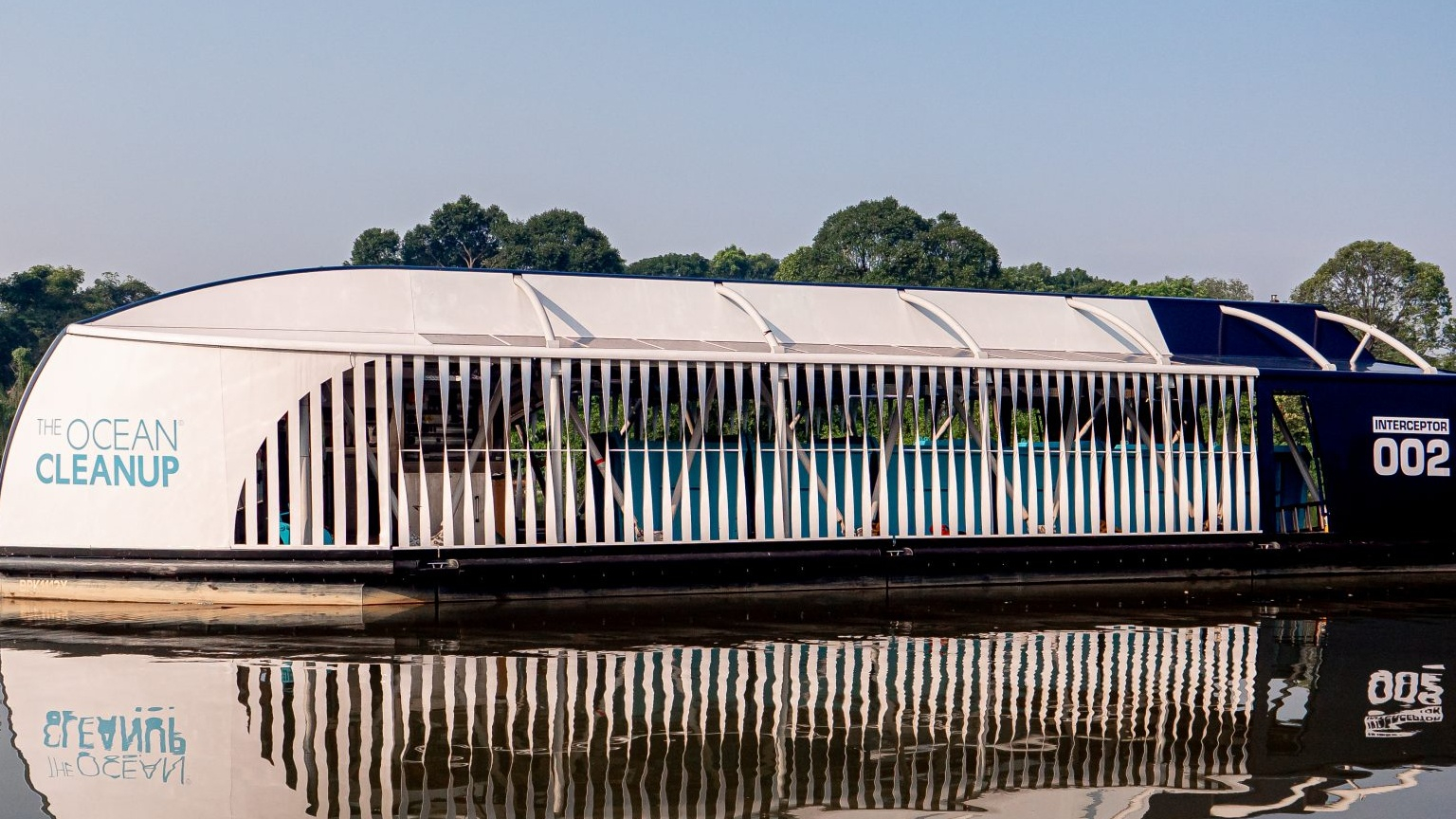02:09

Plastics have long been a problem in the world's oceans. A Dutch foundation now claims to have a solution. It tackles the menace at one of the major sources of plastic pollution – rivers.
The Ocean Cleanup, an NGO that focused its efforts in clearing the 'Great Pacific Garbage Patch', has unveiled a solar-powered barge that stops plastics floating in rivers from reaching open water.
'The Interceptor' is an autonomous system capable of extracting 50,000 kg of trash every day, and 100,000 kg under optimized conditions.
Anchored to the riverbed, the vessel uses floating barriers to channel plastic to itself. A conveyor belt then separates the garbage from the water which is then dumped into containers on a separate barge.
'The Interceptor' can operate 24/7 and is powered by lithium-ion batteries. An onboard computer monitors performance, energy usage and the health of components.

'The Interceptor' is an autonomous system capable of extracting 50,000 kg of trash every day, and 100,000 kg under optimized conditions. (Credit: The Ocean Cleanup)
'The Interceptor' is an autonomous system capable of extracting 50,000 kg of trash every day, and 100,000 kg under optimized conditions. (Credit: The Ocean Cleanup)
Boyan Slat, an aerospace engineering student drop-out and Founder and CEO of The Ocean Cleanup said: "To truly rid the oceans of plastic, we need to both clean up the legacy and close the tap, preventing more plastic from reaching the oceans in the first place."
"Combining our ocean cleanup technology with the Interceptor, the solutions now exist to address both sides of the equation."
Four Interceptors have been built to date, two of which have already been deployed in Jakarta, Indonesia and Klang, Malaysia. A third system is to be installed in Can Tho in the Mekong Delta in Vietnam while the fourth is destined for Santo Domingo, Dominican Republic.
Thailand, too, has agreed to station an Interceptor near Bangkok. Talks are on to have one in LA County in the United States.
In the next five years, The Ocean Cleanup aims to install the system in 1,000 of the world's most polluted rivers.
According to the NGO, 80 percent of the rubbish in the oceans originate from just one percent of the world's rivers.

In the next five years, The Ocean Cleanup aims to install the system in 1,000 of the world's most polluted rivers. (Credit: The Ocean Cleanup)
In the next five years, The Ocean Cleanup aims to install the system in 1,000 of the world's most polluted rivers. (Credit: The Ocean Cleanup)
'The Interceptor' is a scaled-down version of The Ocean Cleanup's System 001, a floating rig that collects plastic from the 'Great Pacific Garbage Patch'. Having witnessed several setbacks, an improved variant called 001/B has recently tasted success by scooping very small pieces of plastic.
The plastic collected will be recycled or used to generate electricity.
To know more about plastic pollution and other issues afflicting rivers visit CGTN's 'Life of a River'.